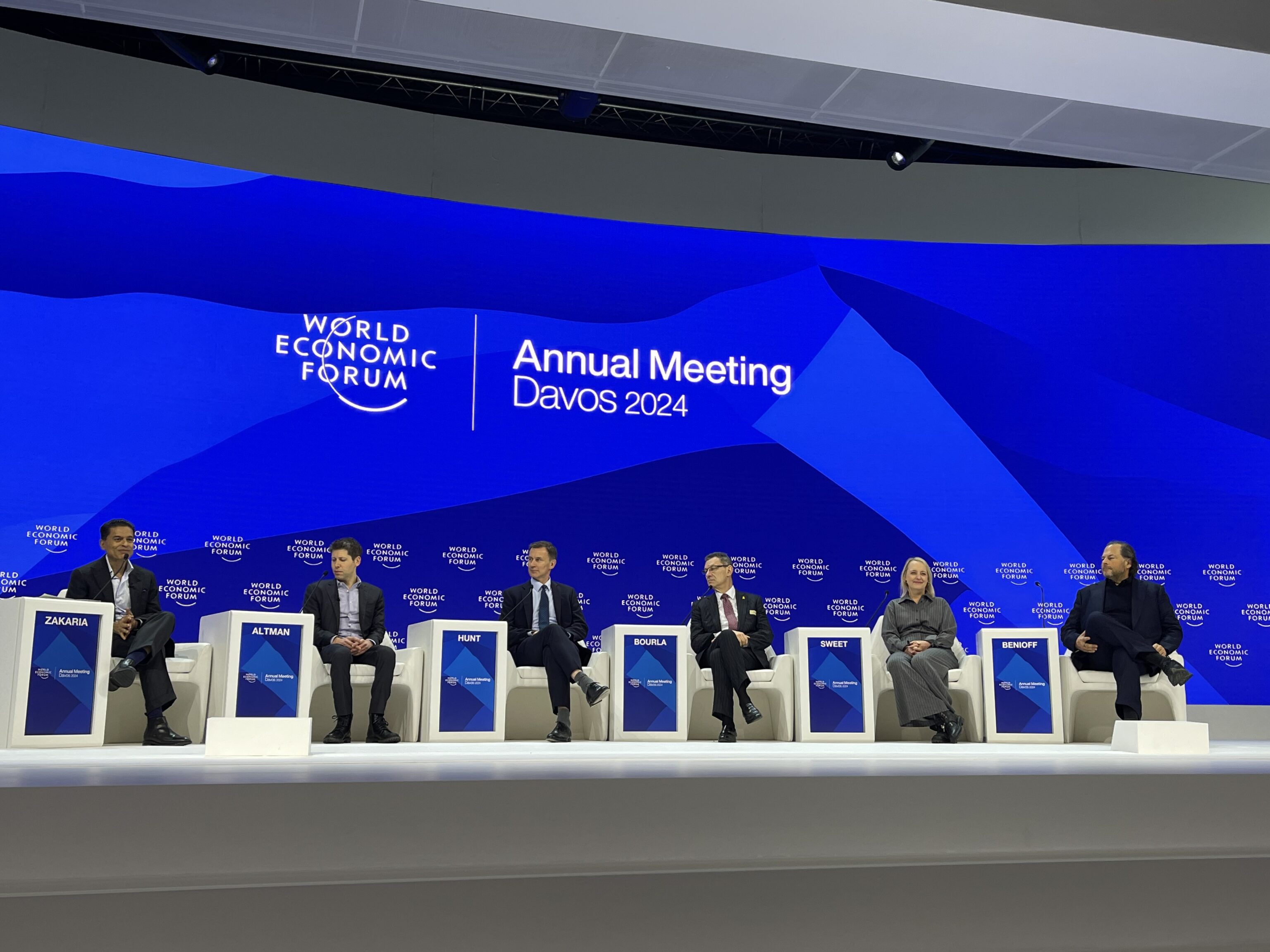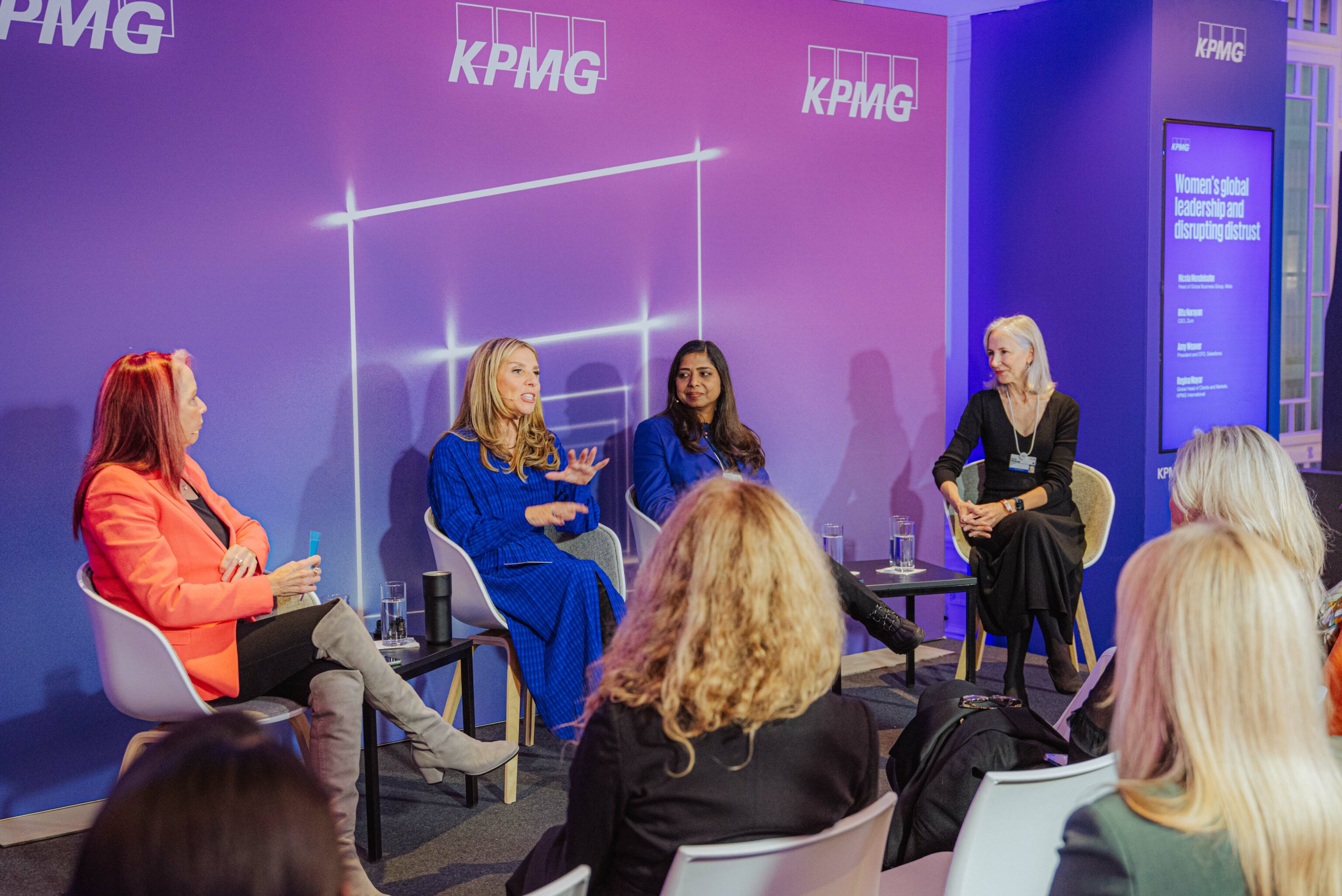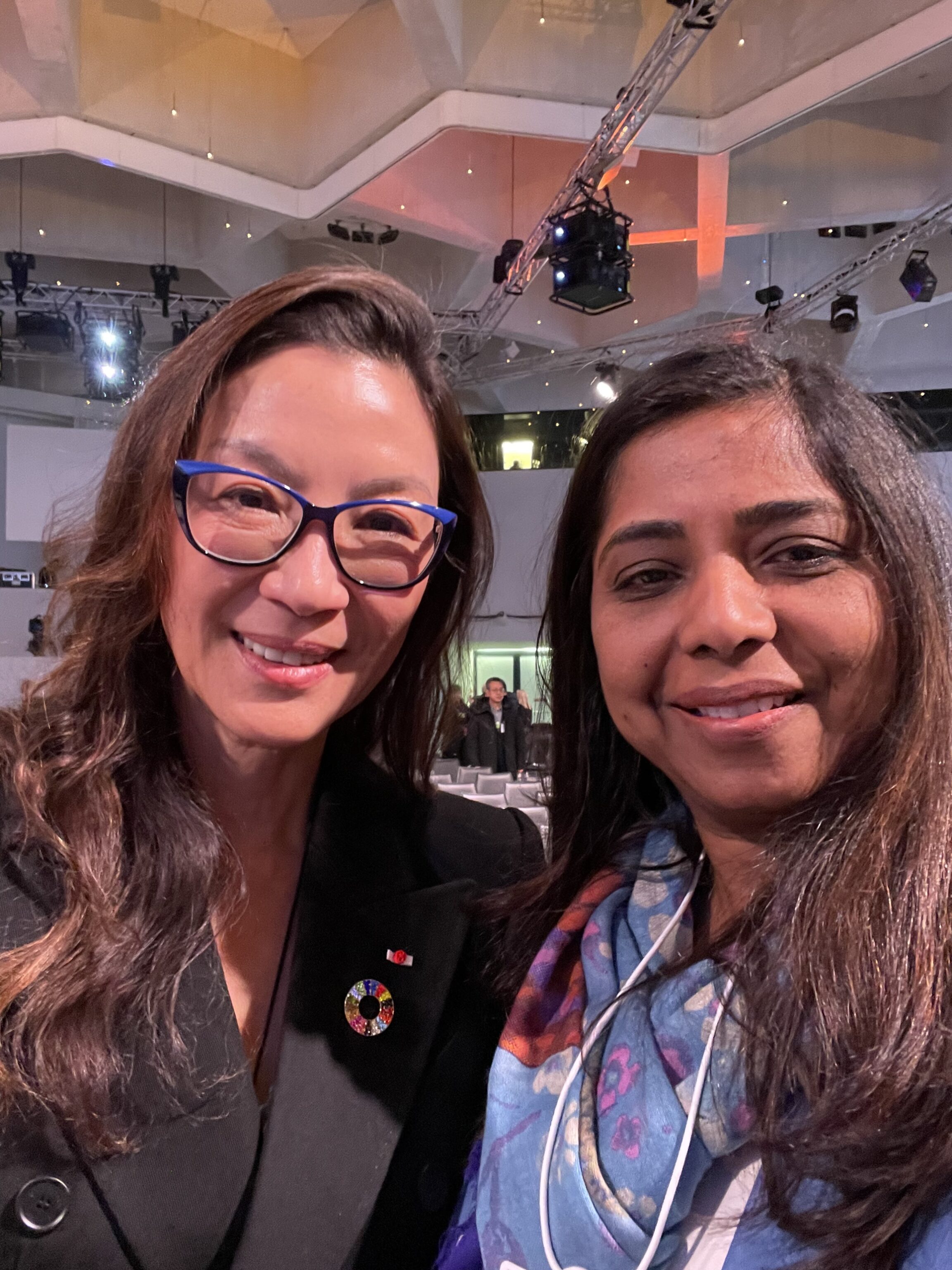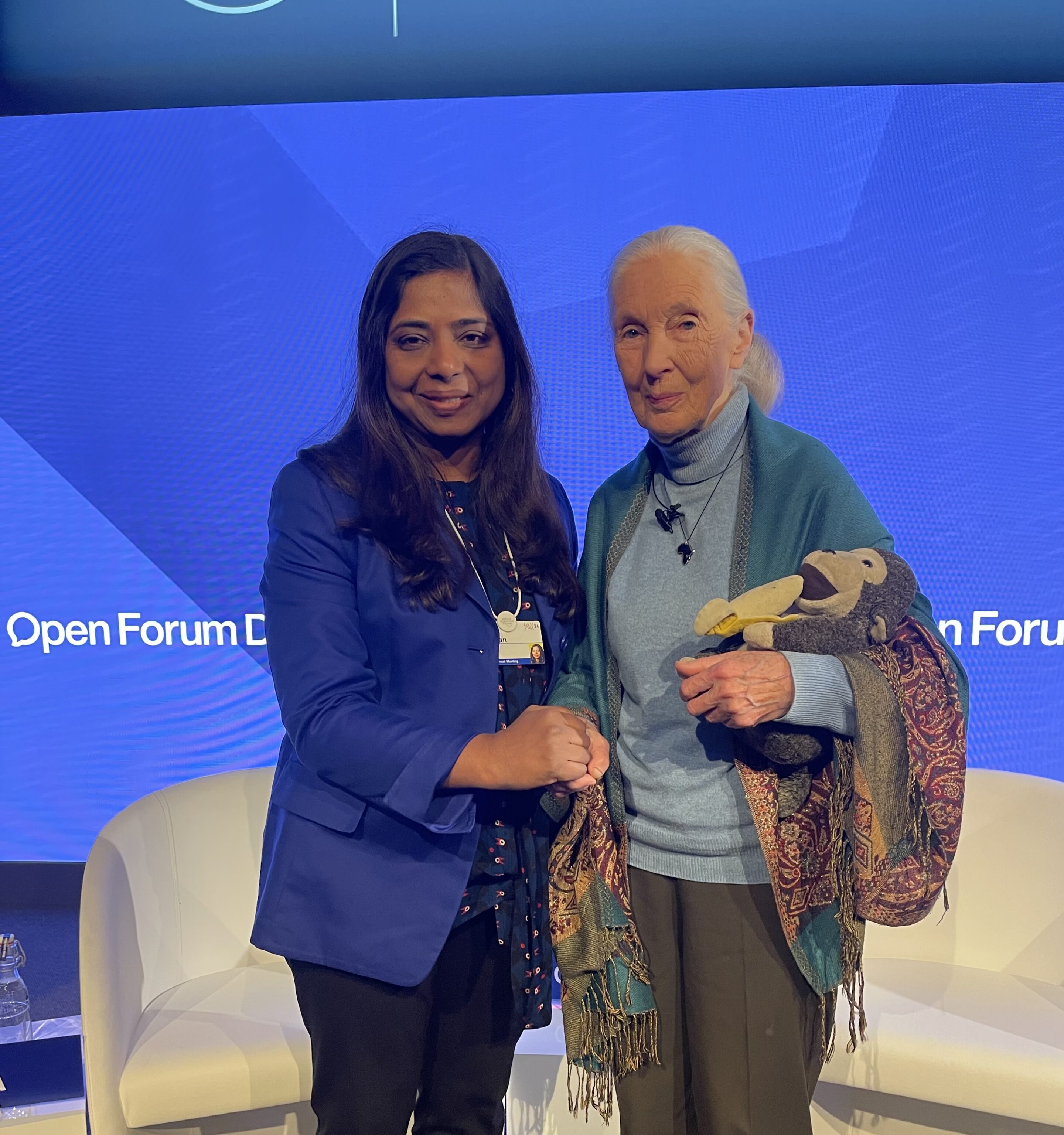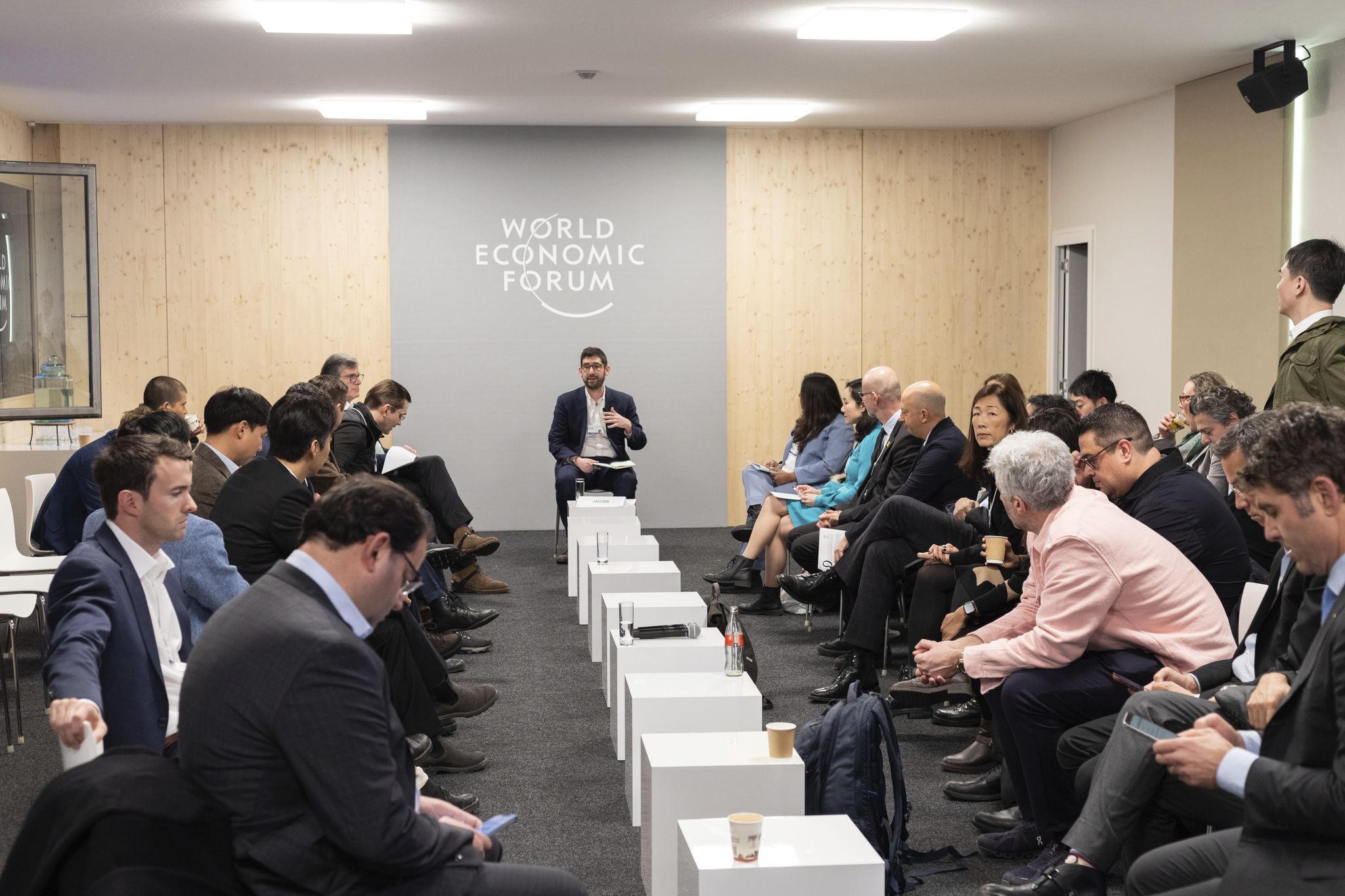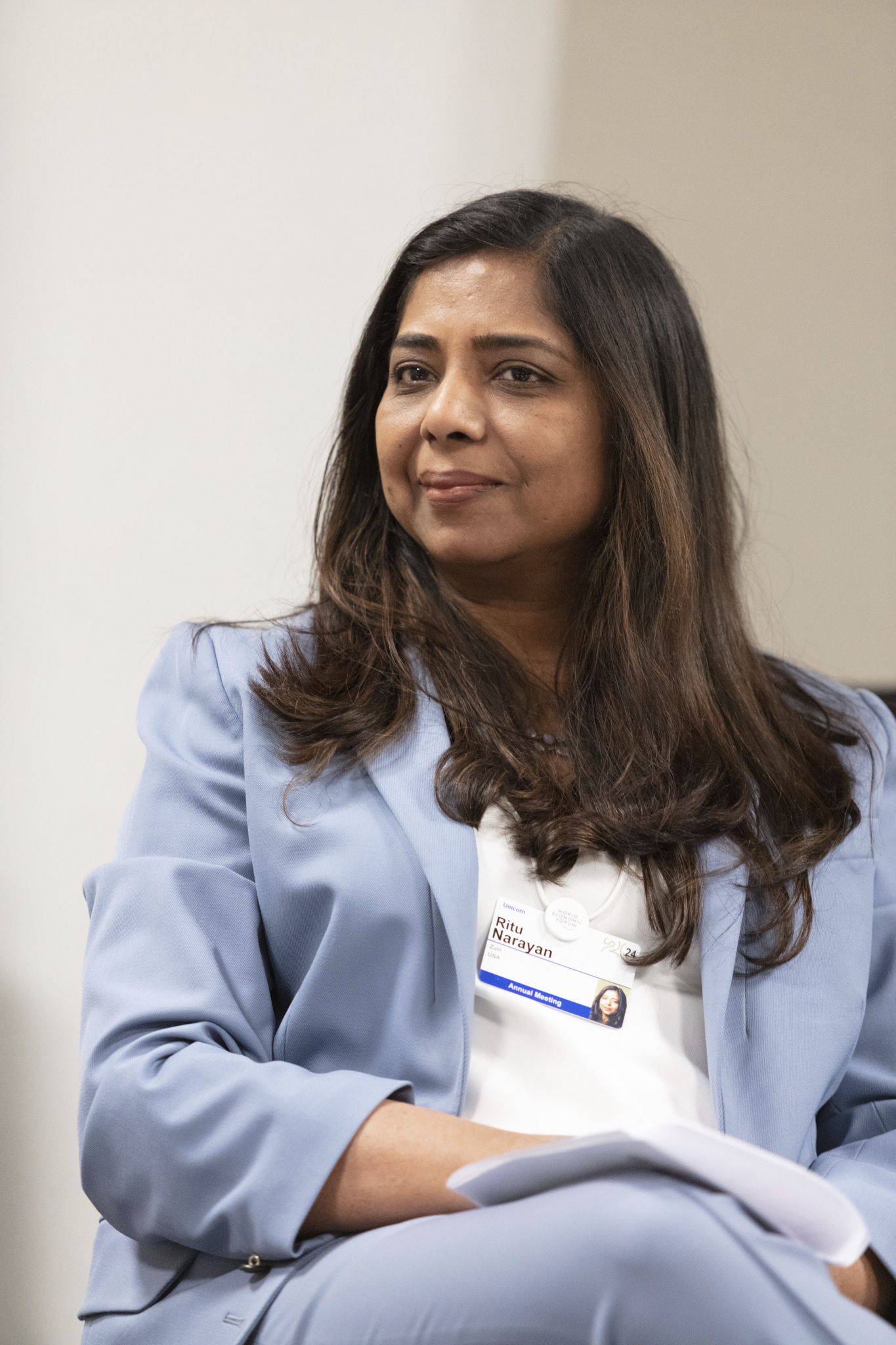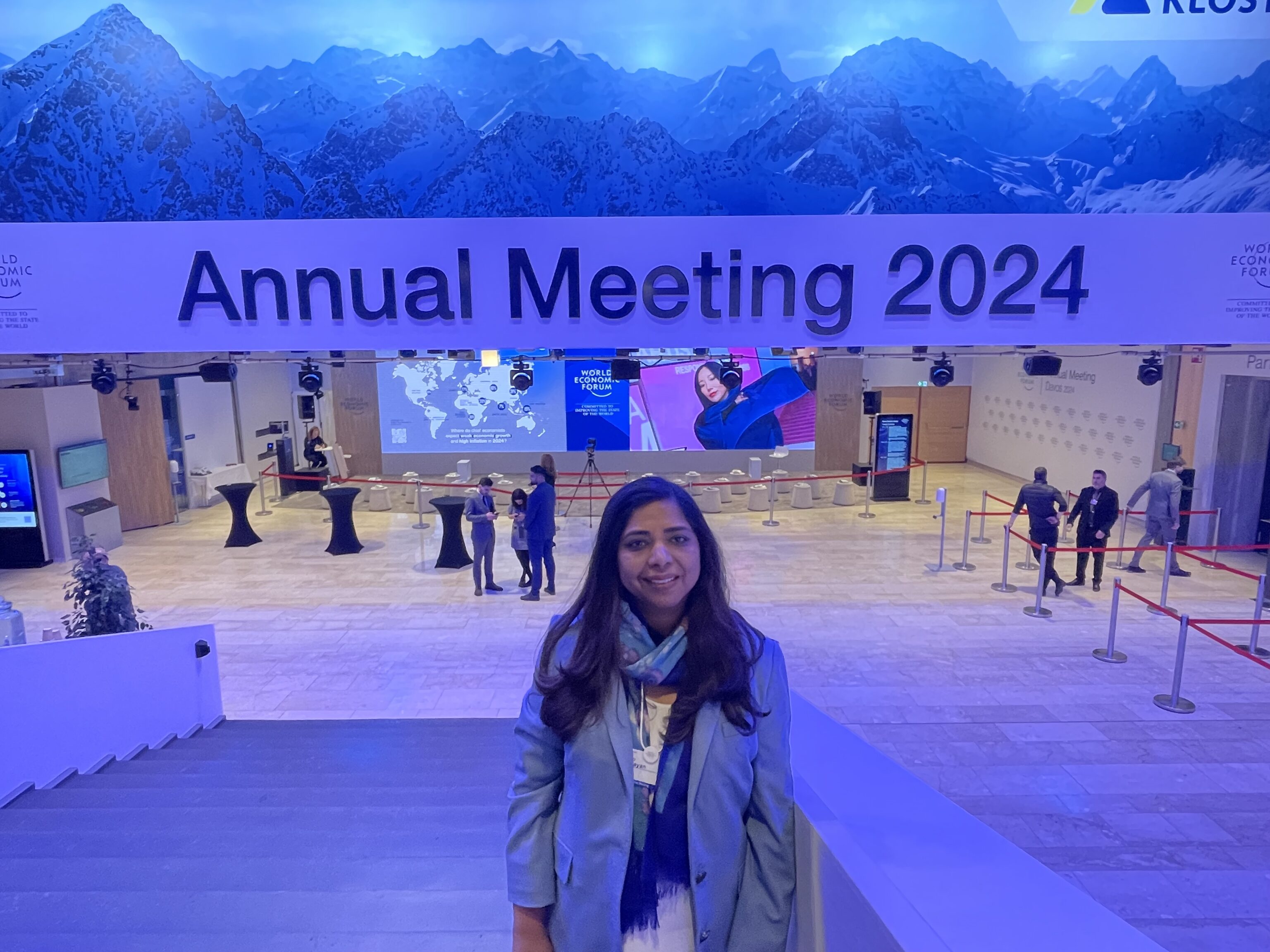
What I Learned at Davos
Today is my first day back from the 54th Annual World Economic Forum at #Davos2024. After hearing from the world’s leaders on a variety of crucial topics, I’m energized and inspired, but also filled with a sense of urgency. We all have important work to do!

This year at the WEF, the theme was “rebuilding trust.” The two biggest areas in which we need to rebuild trust are climate change and AI. Both will require global collaboration to address them the right way.
In the spirit of that collaboration, I wanted to share a reflection from my time at Davos. Here are my key takeaways, the things I learned, and how I hope to apply them, both as the leader of Zum and in my own personal life.
-
Lead with empathy and transparency.

The first thing I want to share is how awestruck I was by the lineup at Davos: heads of nations, top investors from sovereign funds, leaders of the World Bank, the World Trade Organization, and Fortune 100 CEOs. I’ve been to the WEF before, but even so, the significance of the people in attendance can be staggering.
Yet, as impressive as they were, the leaders at Davos were also warm, approachable, empathetic, open, and honest. Doug McMillan, CEO of Walmart, the world’s largest corporation, stressed the importance of purpose, values, and principles. Jagan Chapagain, Secretary General of the Red Cross—the only Asian to ever hold this position, by the way—told me how he started working for the organization at thirteen years old as a volunteer, and why it’s so important for the Red Cross to recruit, train, and mobilize its volunteer force.
Across the board, the leaders at Davos wowed me with how human-centric they were, how dedicated to empathy and clear, candid communication. It was inspiring, and will definitely shape the way I communicate with my team at Zum going forward.
-
We must have global collaboration on climate change and AI.

Second, I want to emphasize the two biggest issues coming out of Davos this year: climate change and artificial intelligence. As a species, we are doing irreversible harm to this planet, which is already having massive humanitarian consequences, and while artificial intelligence has the potential to improve human productivity and quality of life, it can also be very harmful if not deployed responsibly.
The leaders at the WEF focused intensely on these two topics. The head of the International Monetary Fund stressed how the climate crisis is also a health and security crisis. Sam Altman talked about the fact that, as important as AI is, it can’t replace our understanding of our fellow humans.
Most importantly, all leaders stressed the need for global collaboration. Climate change and AI will not be solved by individuals, individual companies, or even individual countries. Only by working together, as one global economy, will we be able to address the harm we’re doing to our planet, and safely / responsibly harness artificial intelligence.
-
Representation matters.

Third, I was reminded while at Davos of the critical importance of representation matters when solving global issues. This is something we all know, but it’s always good to have this lesson refreshed, especially when the stakes are so high.
At this year’s WEF, I was privileged to sit on a few panels and discussions. Perhaps the most impactful was on women’s leadership and building trust in the age of AI. For this panel, I was joined by Amy Weaver, President and CFO of Salesforce, and Nicola Mendelsohn, Head of Global Business at Meta.
Together, Amy, Nicola and I discussed the importance of AI to our society, and our urgent need to create trust through transparency. Women must play an important and equal role in the AI transformation. We are powerful leaders who harness empathy and transparency, and our voices have been overlooked for too long. Representation matters, particularly on the global stage.
Remember: diversity, whether of gender, sexuality, race, socioeconomic status, or nationality, is vital to building a brighter, better future.
-
Don’t forget joy and inspiration!


Finally, while I spent a lot of time envisioning and planning for the future, I was never too busy to pinch myself and enjoy the present. Two people in particular truly sparked joy for me.
The first was Michelle Yeoh. Many of us know her as a gifted and Academy Award winning-actor, but she’s also been a U.N. ambassador since 2016, is a champion of important causes like road safety, and is ultimately a kind, generous, and inspirational human being. It was a privilege to meet her.
And the second was the legendary Jane Goodall. At ninety years old, Jane is still traveling the world with Mr. H, her stuffed chimpanzee, to talk about the importance of compassion toward animals and nature. Listening to her speak absolutely dazzled me—afterward, my motivation to solve the world’s problems reached an all-time high. I felt lucky to meet her, Michelle, and so many others while at Davos.
Don’t forget to enjoy the little things!
-
Bonus takeaway – focus on the job in front of you.


I’d be remiss if I didn’t mention one more thing. I thoroughly enjoyed another panel I was on: “From Existential to Exponential – A New Era of Tech Investing.” On the panel, I was joined by Scott Sandell of the NEA, Zach Bogue of DCVC, Siyu Huang, the CEO of Factorial Energy, Dror Brin, the Head of the Israeli Innovation Authority, and moderated by Sam Jacobs, Editor-in-Chief of TIME magazine. My big takeaway? Founders, startup leaders, and CEOs have to keep their focus on building great business, even through these tough environmental and financial times. Together, we can make a difference.
There you have it—my key takeaways from Davos. I’m going to apply everything I’ve learned to my company, Zum, and to every other aspect of my life, and I’ll be sharing more about that journey in 2024.

